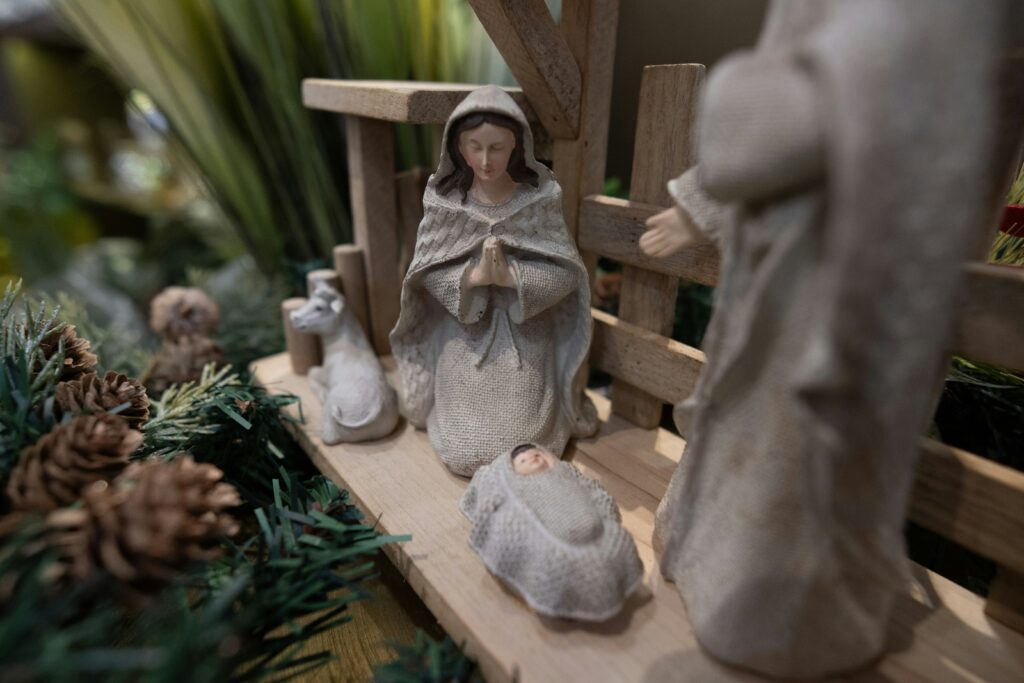Good News: God Is Moving In Asia And Far Beyond (Part 2) by James Loftin

There has never been a time when God was not moving toward human brokenness and lostness. From Genesis 3 until this moment, gracious God has been on the move. Often, we are oblivious to God’s redemptive work, but sometimes we get a glimpse of his grace and stand in awe. As my wife and I traveled through East Asia for six weeks last summer, we were blessed to see the miraculous movement of God day after day. As I reflected on those experiences, God gave me eight insights regarding his global movement and our partnership with the Holy Spirit. In part I of this article, I shared about the inherent value of every soul, the fact that no darkness is impenetrable, God’s prevenient and ongoing grace, and the importance of indigenous leadership. I pray that these next four insights cause you to think carefully about God, our faith, God’s mission, and the people waiting in darkness.
1) God continues to use imperfect tools. Despite our real limitations – in my case, my age, average intelligence, modest bank account, brokenness and ability to only speak one language – God can and does use any willing vessel. Across Asia, God opened doors for us to share and demonstrate the Gospel. This had little to do with our worthiness or training. It was mostly because we asked God to use us, we prepared well, and we were sensitive to God’s movement during our daily activities. God can and does use all types of personalities and skills. God uses children and senior citizens. God uses broken bodies and professional athletes. God uses anyone who is bold enough to ask God to use them.
During my week in the remote part of Asia, I was shocked by the way the people responded to me. For the first time in my life, I could somewhat relate to what it might feel like to be a celebrity. Every taxi driver, hotel receptionist, restaurant worker, and new friend reported the same thing: “You are the first American I have met.” My height, white hair, and blue eyes caught everyone’s attention, and I was routinely approached with requests for a photograph. People were curious about my life and beliefs. They wanted to talk with me. In each of those encounters, I was able to pray for a person or family and/or speak a word of blessing to them – either silently or spoken. One day, my presence caused such a stir at an outdoor event with thousands of children that I had to leave.
As I reflected on the crowd’s response to me that day, I was humbled. An old, mono-linguistic man from a lower-middle class family in a rural part of the United States had found his way to the opposite side of the earth. How did that happen? Why did it happen? Once again, I praised God for continuing to use imperfect vessels like me for his glory.
2) It’s still time to cry. I cried a lot in Asia. I cried with gratitude and praise as I gazed at vistas that only a majestic God could create. I cried as I looked at beautiful people created in God’s image – although they had no knowledge of the Creator. And I cried over the oppressive darkness in many places. Instead of fighting back my tears, I embrace the sensitivity God has given me.
When I consider possible reasons that so many lost and hurting people remain unreached, I wonder if one reason is related to the absence of tissue boxes in the sanctuaries of our churches. If the pain in the world does not move us to tears, we will probably not be moved to act in ways that shine Christ’s love. If you can’t relate to this tear-talk, join me in praying what Bob Pierce prayed 60 years ago: “Let my heart be broken by the things that break the heart of God.”
But this season of sorrow will come to an end – Hallelujah! Light ultimately and completely will conquer darkness as the King of light is fully revealed and his kingdom comes – And God shall wipe away all tears from their eyes; and there shall be no more death, neither sorrow, nor crying, neither shall there be any more pain: for the former things are passed away (Revelation 21:4). And with that confidence, we smile through our temporary tears.
3) Some things never end. Tears and suffering will cease when Jesus establishes His Kingdom, but some things will never end. Even after we pass through the portal of death, we will forever declare the praises of him who called you out of darkness into his wonderful light (I Peter 2:9). The purpose and passion of a Jesus follower is to live, speak and act in ways that point to Jesus. As our lives roll forward, however, failing health and other life realities can lure us into thinking: “My Kingdom impact has practically ended. The younger folks are shining now. It’s time for me to take a comfortable seat and watch the action – and maybe just pray.”
Vivien and I had been in Asia for over six weeks. It had been a wonderful but weary journey, and we were finally on the way to the Saigon airport to fly home. As our driver, “King” navigated the traffic, Vivien and I did what all travelers do when they are on the way home. We checked and double checked our passports. We reminisced about the glories of the journey. And we thought about getting in our own bed. The trip, our mission, was over.
Or was it? After a few minutes, King mentioned that he hoped to get married soon. I encouraged him, but my focus quickly returned to thoughts of home. After a few moments, he broke the silence with these honest and vulnerable words. “But I have a problem.” Amazed that my new friend was being vulnerable with a stranger, I leaned up to hear and see him better as he continued. “My girlfriend and her family are Christians. My parents are Buddhists, and I am nothing. My girlfriend’s family is insisting that I become a Christian before we get married. I think that is unfair.”
Once again, the presence and the voice of God became so clear to me: “Your mission is not over.” I smiled, fought back tears of joy, and asked God to guide my words. For the next forty-five minutes, Vivien and I shared our light stories and pointed our new friend to Jesus. King and I still communicate, and we hope to be at his wedding in 2026.
Every day that we have breath is a day to share and demonstrate the glory of Jesus. We may not be able to visit another country, but there are countless other ways to point to Jesus. We can serve and proclaim God’s glory in our own area, support others who go far, and we can pray. Today, tomorrow and forever, we point to Jesus.
4) No passports are needed to impact the world with prayer. At several points in our journey, I had the strong sense that someone was praying for us. As I shared my light story and God’s grace with people like Inna and King, I was often aware that we were not alone. Sometimes, I even looked over my shoulder to see who had entered the room. Only then did I realize that the Holy Spirit and a praying friend had joined us. I can’t adequately communicate how the prayers of the saints impacted me as I stood in foreign lands in the face of beautiful people who need Jesus. Prayer is indeed a viable way to participate in the work of God far beyond our own homes.
In Acts 1:8 and countless other places in Scripture, Jesus calls us to move out in the Spirit to impact the world for Christ. Prayer is not the only way to participate in the Great Commission, and it is not a faithful substitute for other steps God has called you to take. But God continues to use the faithful, tear-filled prayers of his children to encourage missionary servants and change the world. So let’s pray!
As you reflect on these four insights –
– Which insight best connects with your needs or passion today?
– Which lost, hurting and unreached people has God put on your heart?
– In what ways is God calling you to lift the lamp of Jesus’ love even higher?
Lord Jesus, thank you for moving with transforming power around the world. May the Church in every nation faithfully follow you in your mission of grace. Amen.
Subscribe
Get articles about mission, evangelism, leadership, discipleship and prayer delivered directly to your inbox – for free


























